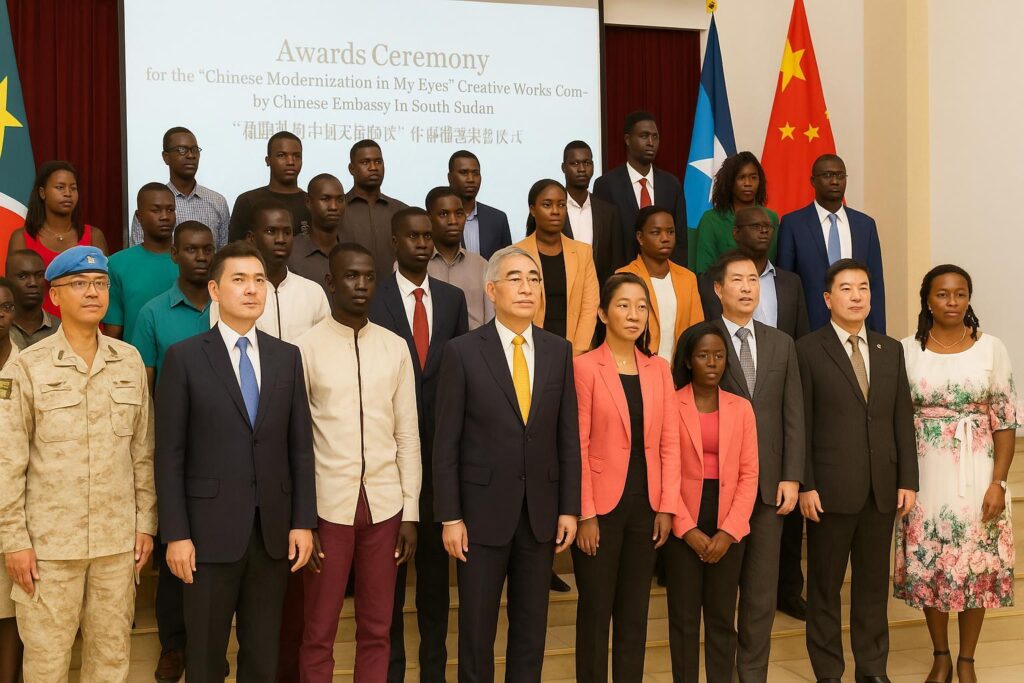A Celebration of Shared Progress
Juba’s Chinese Embassy turned into a gallery of colour and sound as 22 young South Sudanese collected prizes for essays, photos and short videos themed “Chinese Modernization in My Eyes” during an August ceremony attended by diplomats and artists.
Ambassador Ma Qiang applauded the winners, noting that Beijing’s development journey, built on scale and inclusivity, offers “valuable reference points” for nations such as South Sudan that seek growth without abandoning cultural heritage.
Inside the Competition
The three-month contest invited students, journalists and entrepreneurs to depict how modern railways, fintech and eco-cities they observed in China could translate to East African realities. Submissions were judged on creativity, research depth and ability to connect global trends with local needs.
Organisers said over 150 works poured in from universities in Juba, Wau and Malakal. Top winners walked away with laptops, cameras and study-tour invitations, while every participant received Chinese language learning vouchers, underscoring Beijing’s soft-power investment in youth skills.
Voices From The Winners
Daniel Abocha Ali of the SPLM Youth League praised the contest for showing that “development is a team sport”. He argued that African states can mirror China’s poverty-reduction record by nurturing peace first, then channeling resources toward agro-processing and renewable energy.
Journalist Abuk Augustino said her multimedia piece focused on China’s high-speed trains, stressing that affordable mobility “unlocks jobs as surely as degrees do”. She wants similar corridors bridging Juba to regional capitals to cut transport costs.
What Chinese Modernisation Means for Africa
Economists note that Chinese modernisation blends state planning and market dynamism, a hybrid approach many African policymakers already study. Dr. Sarah Logali of the University of Juba believes the model’s emphasis on infrastructure and human capital resonates with the African Union’s Agenda 2063.
Critics caution that copying any template wholesale is risky, yet they concede that partnerships bringing technology transfer, vocational training and market access could accelerate continental goals. Several speakers urged governments to negotiate deals that maximise local jobs and respect environmental safeguards.
Bilateral Ties in Focus
Since 2011, China has financed roads, oil facilities and hospitals across South Sudan while supporting peace talks at regional forums. Ambassador Ma reminded guests that these projects succeed “only when owned by the community”, pledging future programmes in agriculture and digital connectivity.
As flashbulbs faded, the winners promised to keep telling what they called a joint success story. Their commitment signals a growing generation of storytellers ready to bridge continents, distilling lessons from Shanghai’s skylines to the banks of the Nile.


